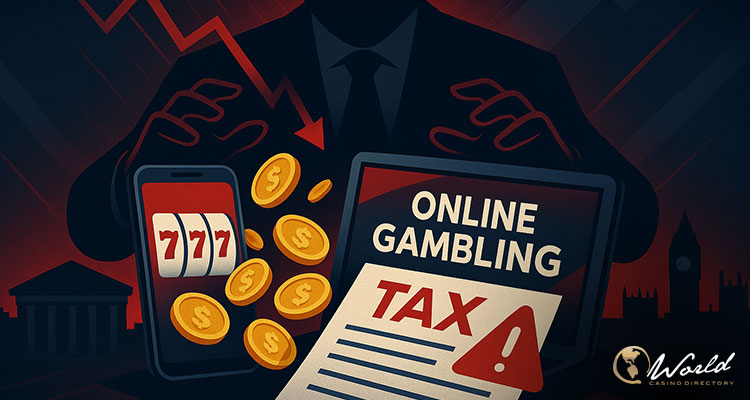A new UK government consultation proposing to consolidate various online gambling tax regimes into a single rate has drawn sharp criticism from key stakeholders in the betting industry. The Betting and Gaming Council (BGC) and the British Horseracing Authority (BHA) have raised alarms over the potential financial fallout for British racing and the wider economy.
Concerns Mount Over UK Plan to Unite Online Gambling Taxes:
On Monday, April 28, the Treasury launched its consultation titled The Tax Treatment of Remote Gambling, laying out a proposal to replace the current system of General Betting Duty (GBD), Pool Betting Duty, and Remote Gaming Duty (RGD) with a unified Remote Betting and Gaming Duty (RBGD). The stated aim is to simplify tax compliance and bring consistency to a sector that has evolved significantly due to technological advances.
As things stand, GBD applies a 15% tax on fixed-odds and pool bets, including those on horse and greyhound races, while remote gaming activities such as slots, roulette, and bingo face a higher rate of 21%. The proposed change could lead to a rise in the overall tax burden on sports betting — a shift that the BGC says would hit racing hard.
BGC chief executive Grainne Hurst did not mince words in her response, describing the proposal as “utterly self-defeating for the government.” She argued that aligning all gambling duties into a single rate could result in higher costs for licensed betting firms, leading them to reduce their UK investment or move operations offshore.
“If General Betting Duty is raised to the same level as Remote Gaming Duty under one new tax, it would be catastrophic for racing’s fragile finances,” Hurst stated, as reported by Racing Post. “It will also likely force businesses to push investment and jobs overseas, while making their products more expensive for UK customers, driving them to the growing unsafe gambling black market online, which doesn’t pay a penny in tax and doesn’t have any of the safer gambling protections available in the regulated sector.”
The BGC also reminded the government that the industry is still reeling from changes introduced through the recent gambling white paper, which it claims have already cost the sector over £1 billion in revenue. Any additional tax burden, it warns, will not result in increased returns to the Treasury.
Greg Swift, the BHA’s director of communications and corporate affairs, echoed these concerns. “We remain concerned about the prospect of tax harmonisation in gambling and believe that there could be significant unintended consequences for both racing’s finances and its workforce if government moves to a single duty,” he said. However, he added that the BHA appreciates the opportunity to contribute to the consultation and will work with stakeholders to ensure the government understands the implications for the sport.
Consultation open until July; rate yet to be determined:
The consultation, which follows its announcement in the March spring statement, will remain open until midnight on July 21. Although the government is seeking input on the feasibility of a harmonised tax system, it has yet to determine what the final rate would be. It clarified that setting the specific tax rate will fall under the budget process and not be part of this consultation’s scope.
Notably, the proposed RBGD would apply exclusively to remote gambling. Traditional land-based betting, including in-person wagers at betting shops, will remain under the existing tax structure.
In his introduction to the consultation, exchequer secretary James Murray noted, “The time has come to consider moving to a single tax for UK-facing remote gambling. A single duty will provide tax certainty and increase simplification for remote gambling.”
Despite the goal of tax simplification, many industry figures fear that streamlining could come at a steep cost — one paid by operators, punters, and the racing sector alike. With the consultation window now open, the betting and racing industries are mobilizing to make their voices heard before the government decides whether to proceed with the reform, potentially by October 2027.



